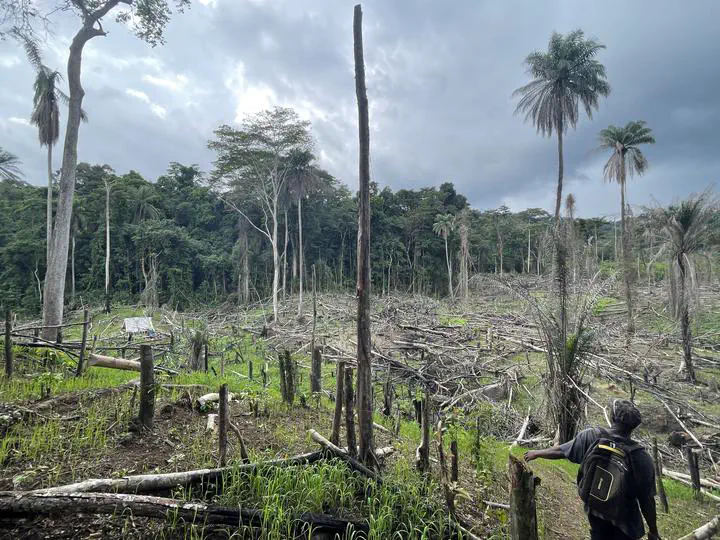TIES: Targeting Incentives for Ecosystem Services
 Lofa County
Lofa CountyConservation efforts that require people to choose between food security and conservation are unethical and unlikely to be effective. In theory, climate finance mechanisms like “payments for ecosystem services" (PES) compensate households for conservation. In practice, there is no institutional infrastructure for delivering payments to forest-dependent households, especially in places like Liberia, where forestland is communally owned.
Climate finance faces three challenges in such settings: (1) identifying communities most at risk of deforestation, (2) ensuring payments are fairly redistributed within communities, and (3) preventing misappropriation by local elites. Our project develops the “last mile” institutional infrastructure for climate finance: we design and experimentally evaluate a model for curtailing deforestation without impeding rural economic development, delivering conservation payments to rural households while discouraging corruption or elite capture.
We offer a community PES contract that integrates a novel accountability mechanism tailored to communally-held forestland (“PES+”). Our project (1) uses advances in machine learning and satellite imagery to target communities at greatest risk of deforestation, (2) harnesses local knowledge and institutions to fairly distribute payments across households, and (3) incentivizes accountability to minimize the misappropriation of payments. Unlike existing conservation efforts, this approach pairs targeting with governance innovations to ensure effectiveness and equity.
The project will assess impacts on deforestation, livelihoods, and local governance over two agricultural seasons. It has been developed in collaboration with Parley Liberia, a local NGO with deep expertise in communal land rights and dispute resolution.